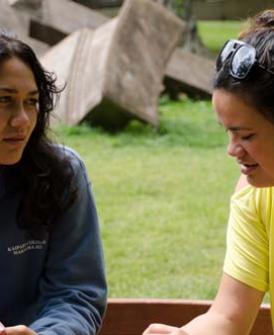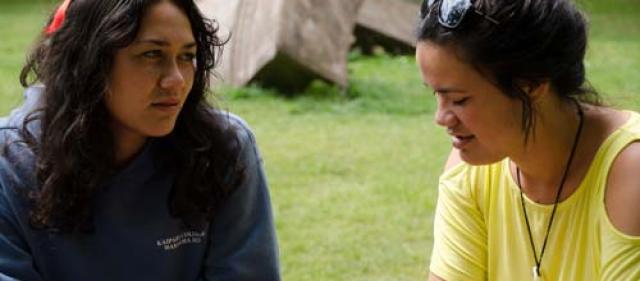Getting help
Getting help
Topics in this section:
- Your whanau: a sibling, parent, aunty, grandparent or someone else in your whanau
- Close friends of your whanau
- Your best friend’s parents/whanau
- Your school: a teacher, school counsellor, nurse, social worker, peer support team, youth health council or sports coach at your school
- Your youth group leader, pastor or church leader
- Your doctor
- Youthline: Call 0800 37 66 33 or free TXT 234. For more info on this service, click here.
- A youth worker
- A social worker
- A face to face counsellor
What if my problems aren’t enough of a big deal to see a counsellor?
Counsellors see people with a range of problems. If it’s affecting you or if it’s on your mind, then it’s worth talking about – no matter how big or small!
Will it actually help?
Most people find it really helpful to have someone non-judgmental, who is outside their friends and family, to just listen to what they are going through. Having a space to share these things can help you feel like you’ve got someone on your team and let go of heavy burdens!
Will they keep what I tell them private?
Yes – generally everything you share in counselling will be private unless there are serious concerns for your safety or the safety of another person. Your counsellor should tell you if they are thinking someone else should get involved to help keep you or someone else safe. They should keep you part of the process and ask for your thoughts. Before you start counselling, you should ask the counsellor what their “confidentiality policy” is if you’re worried about sharing with them.
Can my parents find out I’m coming to counselling?
You should ask the counsellor about this. Generally, if you don’t want your parents to know about the counselling, the counsellor should respect that and not share anything about you. That would mean that if your family call up and ask, the counsellor would have to say they aren’t able to confirm either way.
What if I’ve had a bad experience with a counsellor in the past?
Everyone is different! You can’t judge from one person what another might be like. It may mean you take a while to trust a counsellor again, but talk to them about your bad experiences and hear their thoughts about how your relationship with them could be different. No one expects you to trust straight away. It’s about slowly working towards that.
Can I choose a male or female counsellor?
It depends on whether you go through an agency or not. You can always request this and see if it is possible. It often is.
What if I don’t like the counsellor?
In most cases, if you don’t like the person, you can request to see someone different who is part of the same agency or you can try to find another agency that can support you. The 211 Family Services Directory Helpline can let you know which agencies are in your area and provide their contact details. Even if you don’t like them straight away – give them a chance. When we feel vulnerable it can be easy to feel unsure of peoples’ intentions and misinterpret what they say.
What if I find things too hard to talk about?
It is okay to go at your own pace. It’s really about talking when you are ready. Your counsellor isn’t supposed to force you to talk about anything. You and the counsellor can talk about you not feeling ready and why that might be. It’s normal to feel nervous to talk – especially in the first session. Ask the agency or counsellor if you can bring a support person with you to the first session.
But I want to focus on the future, not the past!
Again, it’s okay to go at your own pace and talk about what you want to. Keep in mind though, that your past, present and future are all connected. Past issues (either from really long ago or recently) can impact how you are in the present and in the future. By understanding those experiences better, you can make sure they don’t negatively impact your future.
What if I feel judged by them?
This is a fear many people have and it’s understandable and normal to have these fears. It’s useful to remember that counsellors see people from all different paths in life and have heard all sorts of stories and secrets. Their job is to be there, listen and not judge. Often one of the reasons people become counsellors is because they see the good in people and feel for them, no matter what they have been through. If you are worried you’ll feel judged, talk to your counsellor about this.
Why do some people get medication prescribed to them?
G.P.’s or psychiatrists will provide some people with prescriptions for medications that can help you deal with mental health issues. It is your right to get really good information about what you are being prescribed so that you can make good choices about whether or not you want to take medication and which ones you are thinking about taking.
How does medication work?
These medications are designed to have an impact on the chemicals in the brain that can alter mood and anxiety levels. While medication has an impact on how you feel, medication can’t teach you new coping and problem-solving strategies, and doesn’t solve the problems in your life – which is something counselling can do. This is why it is recommended that when you take medication, you should have counselling as well.
Does medication work?
Some people may find medications alter their symptoms and makes things easier, while other people may find no change or find things get worse while on medication. It takes a while for medications to kick in, so it can be hard to know at first if it’s working. If you have any concerns, talk to your doctor – but don’t just stop taking them if you don’t think they are working. Coming off medication suddenly can be dangerous and make things worse.
Are there side-effects?
These medications come with a range of side-effects. Some people will experience certain side-effects that others won’t. It’s important that you get good information about possible side-effects and keep an eye on how you’re doing. If you think you might be experiencing anything, tell an adult who can get in contact with your doctor right away – particularly if your mood is lower or you are have an increase in suicidal thoughts or wanting to act without thinking things through.
They want me to go on medication, but I don’t want to!
When you receive a health service, it is your right to make your own decision about your care, and to change your mind about treatments and care. An exception to this would be if you were ordered to receive treatment under the Mental Health (Compulsory Assessment and Treatment) Act 1992. This would only be if there were really serious concerns for your safety and wellbeing and would not be something that would be done lightly. The practitioners should always provide you with information and advice about your treatment options. You should also be open-minded and hear them out so you can make good choices about your health. For more info about your rights when receiving a health service, click here. For info on the Mental Health Act 1992, click here.
How do I know what will be right for me?
Sometimes this is a process of trying things out and seeing what works best. Ask for good information, do your own research, ask questions to a range of health professionals for their advice and opinions. Ask other young people what they have tried and what they say about them.
Need to talk to someone?
Kia ora - tamariki ma
Contact us, we are here to help!


























